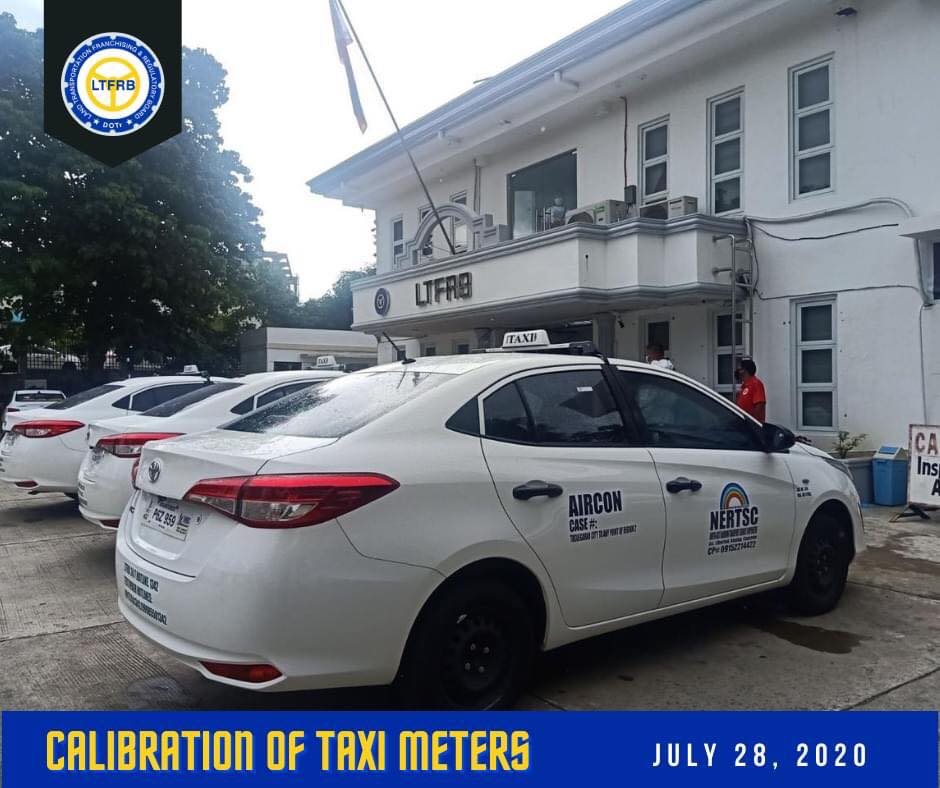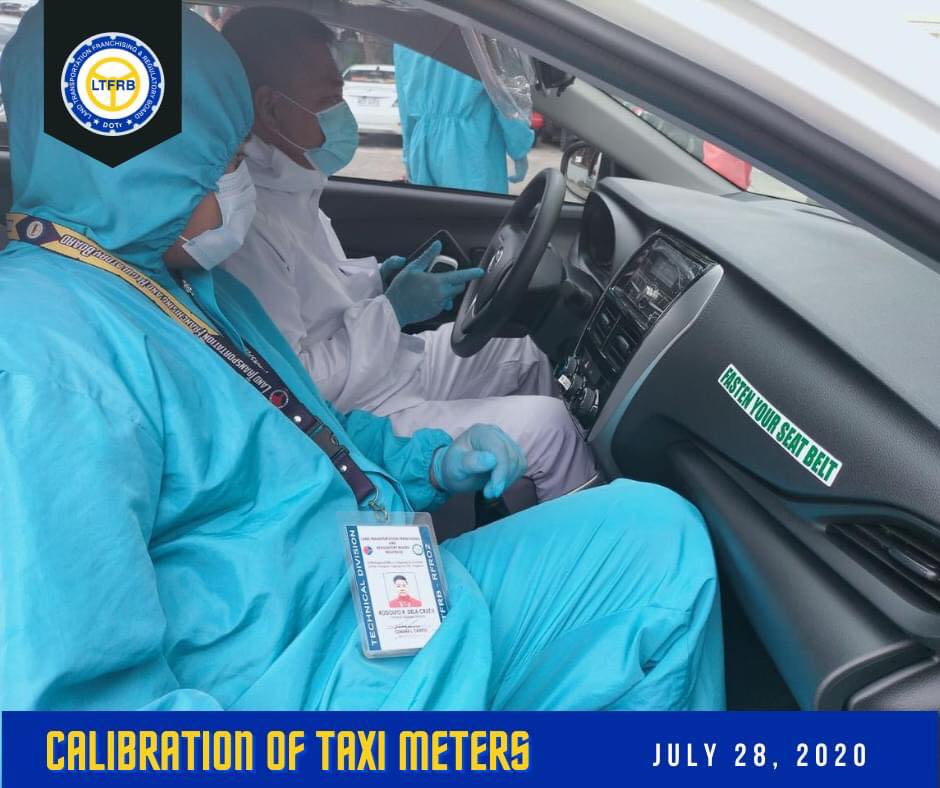Ensuring the proper installation, calibration, inspection, testing, and sealing/resealing of taxi meters at the LTFRB (Land Transportation Franchising and Regulatory Board) is crucial for maintaining the integrity and fairness of authorized taxi services. After all, this process is designed to ensure the accuracy and fairness of fare calculation in authorized taxi services.
The process itself is simple: Taxi meters are thoroughly checked to ensure that they are properly installed and sealed in accordance with regulatory standards. It also involves adjusting the meter to accurately reflect the distance traveled and time spent during a taxi ride. In this guide, we outlined the steps for requesting these procedures.
Inspection, Calibration, and Sealing/Resealing of Taxi Meters
The inspection and calibration of taxi meters at the LTFRB involve thorough examinations and adjustments to ensure that the meters accurately calculate fares as per regulatory standards. Here’s what it entails:

Inspection
The inspection process involves examining the taxi meter to ensure it is properly installed and functioning correctly. Inspectors check for any signs of tampering or malfunctions that could affect fare calculation. The goal is to verify that the meter meets the requirements set by the LTFRB for accuracy and functionality.
Calibration

Calibration refers to the adjustment of the taxi meter to ensure it accurately measures distance and calculates fares. This process involves fine-tuning the meter’s settings to align with predetermined fare rates set by the LTFRB. Calibration is crucial to ensure that passengers are charged the correct fares based on distance traveled and other factors.
Resealing
After calibration, the taxi meter is sealed or resealed to prevent tampering and to indicate that it has undergone the necessary inspections and adjustments. Resealing provides assurance to both passengers and regulatory authorities that the meter is accurate and compliant with standards.
Purpose
The purpose of inspection and calibration at the LTFRB is to uphold fairness and transparency in fare calculation for passengers using authorized taxi services. By ensuring that taxi meters are accurately calibrated and sealed/resealed, the LTFRB aims to protect consumers from overcharging or unfair practices. The Taxi Meter Calibration Certification sticker affixed to the taxi unit serves as a visible confirmation of compliance and provides passengers with confidence in the accuracy of the fare calculation.
Who Can Avail
This procedure can be requested from the LTFRB by the following:
- Taxi Operator/s
Requirements
To get started with the request for inspection, calibration, and sealing/resealing of taxi meters,, taxi operators must prepare the following documents:
- One (1) Original copy of duly accomplished Request Form
- One (1) Original copy for presentation and one (1) Photocopy of any valid government-issued ID Card
- One (1) Original copy for presentation and one (1) Photocopy of current LTO Official Receipt (OR)
- One (1) Original copy for presentation and one (1) Photocopy of the current LTO Certificate of Registration
- One (1) Original copy of Original Calibration Booklet (Passbook)
- One (1) Original copy of the Official Receipt of payment for Sealing/Resealing Fee including Extension of Validity filing fee, if applicable (after payment)
- One (1) Original copy of the Franchise Verification (to be provided by the LTFRB)
For Authorized Representatives (Individual Operators)
Personal appearance of the petitioner is required. However, if not possible for petitioner to be physically present, authorized representative is allowed upon presentation of:
- One (1) Original copy for presentation and one (1) Photocopy of Duly notarized Special Power of Attorney (SPA)
- One (1) Original copy for presentation and one (1) Photocopy of Valid Government-Issued ID of the applicant and authorized representative
For Cooperatives, Corporations, and Partnerships
- One (1) Original copy for presentation and one (1) Photocopy of Board Resolution/ Secretary’s Certificate authorizing the inspection, calibration, and sealing/resealing of taxi meters and designating the authorized representative/s to file Petition
- One (1) Original copy for presentation and one (1) Photocopy of valid government-issued ID of the authorized representative
Procedures
For a detailed guide on how to file a request for inspection, testing, sealing/resealing of taxi unit/s at the LTFRB, here are the steps to follow:
Step 1. Visit the LTFRB Office
Begin by visiting the nearest LTFRB office to obtain the necessary forms and checklist of requirements.
Step 2. Secure Request Form

Head on to the LTFRB Public Assistance Complaint Desk (PACD) and secure a request form for inspection, testing, sealing/resealing of taxi unit/s.
Step 3. Submit Application
Submit the duly accomplished request form along with the supporting documents to the LTFRB Technical Division for authentication and completeness check.
Step 4. Fee Assessment and Payment
Upon verification, fees will be assessed, and a payment order slip (POS) will be issued. Proceed to make payments at the designated cashier and wait for the official receipt to be issued.
Step 5. Inspection, Calibration, and Sealing/Resealing
On the scheduled date of the resealing, proceed to the Resealing Area for the inspection of unit, road test, and sealing/resealing of Taxi Meter.
Step 6. Claim the Calibration Booklet
Wait for the Calibration Booklet to be issued following the inspection/testing/sealing/resealing at the Technical Division Releasing Unit.
By adhering to the outlined procedures and fulfilling the necessary requirements, all taxi operators can efficiently request for inspection, testing, sealing/resealing of taxi unit/s at the LTFRB, ensuring seamless transportation services for passengers during these peak periods.
Fees
The request for inspection, testing, sealing/resealing of taxi unit/s is not free. When you file such a request, you need to be ready to shell out the money necessary to pay the following fees:
- Regular Fee:
- Resealing Fee: PHP 500.00
- Inspection Fee: PHP 50.00
- Weekly Penalty (if applicable): PHP 125.00
- Change Denomination:
- Resealing Fee: PHP 500.00
- Inspection Fee: PHP 50.00
- Passbook: PHP 50.00
- If with Fare Increase:
- Increase of Rates: PHP 520.00
- Franchise Verification Fee: PHP 40
Processing Time
The processing time is estimated to be at least seven (7) hours, though it may vary depending on the evaluation of the submitted application and the completeness of the requirements submitted. Having additional transactions may also affect the time needed for drafting and recommendation of the order before the approval and encoding of the petition.
Reminders
Taxi operators must follow these rules to avoid penalties:
- They cannot calibrate and seal/reseal their taxi meters before or after the scheduled date.
- Before calibration and sealing/resealing, taxis must have:
- GPS receivers
- Free Wi-Fi
- CCTV cameras recording the last 72 hours of operation
- Dashboard cameras
- Online platforms as per the PUV Modernization Program
- Taxi operators must provide:
- Evaluation Report on taximeter memory capacity for transaction data storage
- Certificate of Accuracy for the taximeter from DOST-National Metrology Laboratory before calibration and sealing/resealing
- Taxi drivers and operators must follow the Omnibus Franchising Guidelines (OFG) under the Public Utility Vehicle Modernization Program. According to OFG, public utility vehicles should have:
- CCTV cameras
- GPS navigation systems
- Speed limiters
- Dashboard cameras
- Free Wi-Fi
Video: Rigged Taxi Meter Scam Explained
The inspection, calibration, and sealing/resealing of taxi meters is designed to protect the commuters. However, in case you need to understand how rigged taxi meters work and how you are protected by the government from taxi meter scams, you may watch this video from Freedom & Fun With JLB.
Summary
The process of requesting inspection, testing, sealing/resealing of taxi units at the LTFRB involves ensuring that taxi meters accurately calculate fares. Operators must follow specific guidelines, submit necessary documents, and pay applicable fees to ensure compliance with regulations and maintain fairness in fare calculation for passengers.